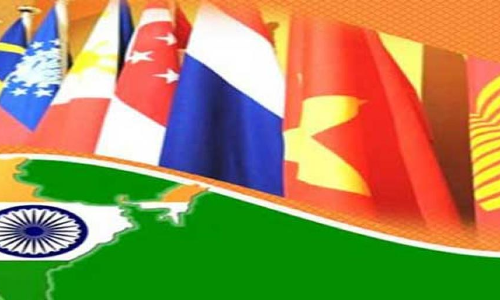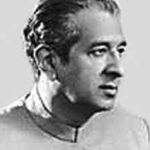|
Getting your Trinity Audio player ready...
|

- As India marches towards 100 years of our Independence, there is a compelling need for India to recognize and reinvigorate its civilizational values and heritage
- Growing strategic gaps in the Indian subcontinent and dynamic changes in the Asian and Global Geopolitics compel India to address the concerns of strategic ambiguity
- India has become the hope of human civilization in being the torchbearer of the global values that include liberal order, democracy and individual freedoms
India is celebrating the 75th Year of its Independence. There is a mood of celebration and joy across the country to mark this special year. Politically and economically the country has made significant progress since its Independence, but yet, when it comes to the formation of institutional frameworks, India lags behind several developed countries and global powers. India’s foreign policy is experiencing a new dynamism in its working over the last eight years, with PM Modi’s personalized diplomacy approach, to which Dr Jaishankar’s expertise and vigour have been added since 2019. There are a lot of hopes and aspirations blossoming in India to envision its future as a global superpower, a “VishwaGuru” and an “Atmanirbhar Bharat”, a self-reliant India. As we look forward to an emerging India with greater and more responsible global stature, it is important to envision how India should shape its foreign policy in the next 25 years.
Contemporary Geopolitics is making the world order go through highly turbulent and difficult times. Combating a pandemic and the apprehensive rise of Chinese global dominance has caused the already disruptive diplomatic institutions in the world to engage in a transactional and an aggressive modus operandi. India’s international challenges are no different than these; the rising hostilities with the Chinese, Pakistan’s everlasting nuisance, growing strategic gaps in the Indian subcontinent, and dynamic changes in the Asian and Global Geopolitics compel us to address the concerns of strategic ambiguity which is supposed to have gripped the policymaking community and the echelons of decision-making authorities both in political and bureaucratic circles. There are concerns of systemic fault lines, overemphasis and pursuance of Ad-Hoc measures, the lack of a clear direction, and lack of institutional framework continue to prevail in the foreign policy decision-making process.
A Self-reliant India needs a Foreign Policy Doctrine
As we march towards 100 years of our Independence, there is a compelling need for India to recognize and reinvigorate its civilizational values and heritage. A realization through the awakening of consciousness that India that is Bharat is not just a territorial entity, It is a living and breathing civilization with dharmic consciousness as its soul. As Sri Aurobindo said, “India is a sacred geography”. This essence and value must be embedded in the educational curriculum of India, especially in the studies of International and Strategic affairs. It’s time to give up the old, fragile and irrelevant policies of non-alignment and ‘panchsheel’ and adopt more robust relevant and realist principles of aggressive diplomacy, cohesive diplomacy and a doctrine that reflects and reverberates India’s civilizational consciousness.
The Need for a Basic Structure in Foreign Policy
The Indian constitution has a basic structure doctrine defined by the supreme court, and in this basic structure, the cardinal principles which cannot be undermined at any cost are clearly mentioned (such as democracy, federalism, independence of Judiciary, so on and so forth) and this process is continuously being carried out by the supreme court, whenever disputes arising constitutional law emerge. Similarly, the foreign policy of India is also in need of a basic structure doctrine, which is non-partisan, de-hyphenated, and would have a clear institutional framework in formulating a coherent foreign policy for India. This basic structure must ensure that India comes out with strategically guided policy documents towards the international issues that affect Indian interests and national security concerns that are posing severe challenges and potential threats. This gives the government, bureaucracy and diplomatic community clarity and a direction towards which they need to work. This would permanently eliminate the controversial strategic ambiguity strategy which is generally cited as a pretence and excuse for policy failures and systemic incompetence.
Reviving the Hindu theory of International relations and forming an India-centric multilateral organization
The Hindu theory of International relations was propounded by an eminent Social Scientist Benoy Kumar Sarkar. B K Sarkar’s razor-sharp intellectual brilliance and outstanding academic rigour enabled him to vigorously engage with the western notions of international affairs and through his global intellectual encounters, his travels fostered he offered an ‘epistemic’ challenge to the western knowledge of International affairs. His Hindu theory of IR consisted of the teachings of Kautilya and Shukracharya’s nitisara that rearticulates the doctrine of Mandala, which he described as underlying the “Hindu idea of the balance of power”. The interpretation of Vedic texts in terms of the canon of western international thought came to be known in his description as “Sarva-Bhauma” the world sovereign, a Hindu variant of permanent peace and multilateral organizations, that would deal with the power dynamics of world politics. With this Indic idea and theory as the basis of the institutional framework, an International organization of the European Union model must be formed as a strategy for expansion of India’s foreign policy outreach. And here the “Sarva-Bhauma” must be centred on the Indian subcontinent as a safeguard for India’s national interest and national security.
Adopting the cohesive diplomacy strategy of Prof ML Sondhi
Prof Manohar Lal Sondhi was amongst the greatest international relations and foreign policy scholars India had. He served in the Foreign Service for a short stint and joined the JNU School of International Studies as a faculty. It is worth remembering and underlining how ahead of this time Prof Sondhi was in articulating India’s aspirations and identifying ways and means to achieve them. His writings on Indian foreign policy underline several key themes in India’s external relations, ranging from the role of non-alignment to the changing balance of power in the Indo-pacific.

India should discard the policies of a “landlocked country” promoted by Nehru as well as his fixations with Pakistan and China, and Nuclear disarmament to create a new nation, confident and be prepared for the twenty-first century - Prof Manohar Lal Sondhi
In one of his last writings titled “Coercive Diplomacy: beyond deterrence,” he mentions “Controlled military escalation is sometimes necessary to induce external attention to one’s own interests, that there is no such thing as deft diplomacy”. In his view, India should discard the policies of a “landlocked country” promoted by Nehru as well as his fixations with Pakistan and China, and Nuclear disarmament to create a new nation, confident and prepared for the twenty-first century.
Developing a dharmic foreign policy as India’s grand narrative
India is known for its spirituality and philosophical legacy, with a venerable historical heritage. But due to the disinterest and indifference of the government and the colonial consciousness of the west, a lot of misconceptions, illicit notions and worst stereotypes are prevailing in the west. Whether it’s the caste cow and curry notion or the infamous “nation of snake charmers” assumption, for a long period of time India’s image had taken a big hit. But with the passionate efforts and energetic leadership approach of PM Modi, things are changing to some extent but it needs a strategic push.
India must adopt Krishna’s ahimsa instead of Gandhi’s ahimsa as its philosophy, though we proudly promote the ideas of Gandhi’s ideas of ahimsa as a matter of national pride, its practical viability and relevance denotes weakness and fragility as Gandhiji advocates surrendering of arms and engaging in peaceful methods despite the enemy attacking us and aiming towards our destruction, this can wither away the sovereignty of India, along with its unity and Integrity. But as per Krishna’s notion of ahimsa, if the opponent is approaching us from the methods of peace and tranquillity, only then we must engage in peaceful dialogue towards conflict resolution, otherwise, it becomes our dharma to aggressively defend the nation through violent means from the enemy’s peril.
India must adopt Krishna’s ahimsa instead of Gandhi's ahimsa as its philosophy
India is a civilizational state that believes in the Integral Humanism “Ekatma Manavtavada” as Pandit Deendayal upadhaya says. The elevation of overall human consciousness is the goal of Bhartiya parampara, and this is the ultimate aim of Dharma. Divisions of caste, creed, religion race and sex are irrelevant and nonexistent in the dharmic consciousness and its philosophical understanding. This is the reason why Indians strongly believe in the ethos of “Etho dharma, Tato Jayaha”.
Therefore India becomes the hope of human civilization in being the torchbearer of the global values that include liberal order, democracy and individual freedoms, rule of law and rules-based order, to which India will add its essence of Dharmic civilizational consciousness.
(The author has an MA in International Relations)
Viswapramod is a PhD Scholar at the Department of International Studies and Political Science, Christ University, Bangalore. He has an MA in International Relations. Views expressed are the author’s own.
